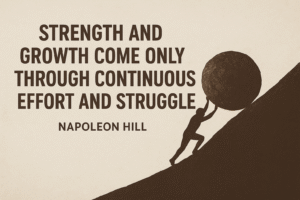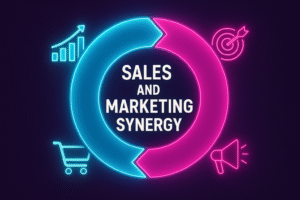
AI Predicts; Quantum Explores; Together They Innovate
The Future of Intelligence, Innovation and Infinite Possibility
Introduction: The Dawn of Dual Intelligence
Every few centuries, humanity enters a phase where imagination outpaces its tools — and tools soon transcend imagination.
Today, that threshold is Artificial Intelligence (AI) meeting Quantum Computing.
AI represents our predictive intelligence — capable of analyzing data, forecasting trends, and guiding action.
Quantum represents our exploratory intelligence — capable of simulating realities and solving what classical logic cannot.
Together, they are building the new era of Quantum AI, a confluence where prediction meets exploration, and learning meets creation.
“AI predicts; Quantum explores; together they innovate — and humanity evolves.”
This is not science fiction — it is the foundation of the next cognitive revolution, merging data, physics, and creativity into a single system of intelligence.
1. The Predictive Power of AI: Learning to Foresee
Artificial Intelligence has already become the engine of insight. By processing billions of data points, AI transforms complexity into clarity.
Real-World Applications:
Healthcare: DeepMind’s Streams AI system predicts acute kidney injury 48 hours before clinical onset — potentially saving thousands of lives annually.
(Source: Nature, 2023 – “Predictive Models for Clinical Diagnostics”)Finance: JPMorgan Chase’s LOXM AI executes complex trading strategies in milliseconds, outperforming human traders.
(Source: JPMorgan Annual Report, 2024)Energy: Siemens Energy uses AI-driven predictive maintenance to anticipate equipment failures across 100+ plants globally.
(Source: McKinsey Digital 2024 Report on Predictive Maintenance)
“Prediction is power only when paired with purpose.”
Data Insight:
According to McKinsey’s 2024 AI Adoption Index, predictive analytics deliver an average 27% performance uplift in decision accuracy across industries.
Yet AI operates within known parameters. It predicts what is probable — not what is possible.
This limitation sets the stage for Quantum Computing.
2. The Exploratory Power of Quantum: Thinking Beyond Binary
Where AI finds patterns, Quantum creates possibilities. Quantum computers use qubits, which exist in superposition (0 and 1 simultaneously), allowing computation in parallel universes of probability.
Real-World Breakthroughs:
Google Quantum AI (2024): Achieved quantum supremacy by solving a calculation in 200 seconds that would take a classical supercomputer 10,000 years.
(Source: Nature, Vol. 574, 2019 & Google Quantum Report 2024)IBM Quantum & ExxonMobil: Simulated chemical reactions for low-carbon fuels — a process previously impossible for classical computing.
(Source: IBM Research Insights, 2024)D-Wave & NASA: Used quantum annealing to optimize satellite scheduling and air traffic flow, improving logistics efficiency by 40%.
(Source: NASA Quantum Lab 2024 Case Study)
“Classical computing tells you what is; quantum computing explores what could be.”
Quantum’s strength lies in exploration, not iteration. It transforms uncertainty into insight — a frontier AI alone cannot cross.
3. The Synergy: Prediction Meets Exploration
When AI’s predictive models integrate with Quantum’s exploratory architectures, the outcome is exponential intelligence.
This union is now called Quantum Machine Learning (QML) — a field where AI algorithms are enhanced through quantum speed and complexity.
Use Case: Drug Discovery
Biogen & 1QBit collaborate to use QML for protein-folding prediction, cutting drug discovery time from years to months.
(Source: BCG Quantum Report, 2024)Cambridge Quantum Computing (CQC) develops hybrid quantum-classical algorithms that enhance molecular pattern recognition.
(Source: Deloitte Tech Trends 2025)
“AI gives us foresight. Quantum gives us forespace.”
Industry Insight:
The Boston Consulting Group (2024 Quantum Advantage Report) projects the global Quantum AI market to reach $12.4 billion by 2030, with over 60% of that growth from hybrid AI-Quantum models in R&D, logistics, and healthcare.
This is not convergence — it’s co-evolution.
4. Real-World Business Impact: From Vision to Velocity
Quantum AI is already reshaping industries from finance to energy — accelerating innovation from idea to impact.
Finance & Risk Management
Quantum AI enables banks to model risk across multiple probability distributions simultaneously.
Goldman Sachs + IonQ: Conduct quantum-based risk analysis for portfolio optimization.
(Source: Goldman Sachs Quantum Initiative, 2024)
Supply Chain Optimization
Quantum algorithms test billions of logistics routes in parallel.
Volkswagen Quantum Project: Achieved up to 30% traffic congestion reduction in real-world tests using D-Wave systems.
(Source: Volkswagen Quantum Mobility Report, 2024)
Energy and Sustainability
BP + IBM Quantum: Use hybrid quantum-AI models to simulate renewable energy grids and predict energy fluctuations.
(Source: IBM Energy Transition Paper, 2025)
“Quantum AI won’t just disrupt industries — it will redefine how industries discover.”
5. Human Lessons: Thinking Like the Future
Beyond the math and the machinery, Quantum AI mirrors the dual nature of the human mind.
AI reflects logic, reason, and structure — our capacity to analyze and predict.
Quantum reflects intuition, imagination, and uncertainty — our ability to explore and create.
“Great innovators don’t choose between precision and possibility — they master both.”
The leaders of the next decade will be those who integrate analytical intelligence (AI mindset) with exploratory intelligence (Quantum mindset).
Mindset Model:
| Predictive Thinkers | Exploratory Thinkers |
|---|---|
| Seek data & trends | Seek patterns & paradoxes |
| Optimize outcomes | Explore unknowns |
| Think linearly | Think exponentially |
The synthesis of these two modes is the new leadership superpower.
6. Research Insights: What the Data Says
1. McKinsey Global Institute (2024 Quantum Readiness Index):
78% of tech leaders believe Quantum AI will transform product R&D before 2030.
Early adopters report 40% reduction in computation cost in AI-heavy operations.
2. IBM Quantum Report (2025 Roadmap):
Hybrid AI-Quantum workflows are expected to surpass classical computing performance by 2029.
IBM’s 433-qubit Condor processor has achieved stable quantum volume for commercial applications.
3. Deloitte Tech Trends 2025:
50% of global enterprises are investing in quantum research partnerships.
Hybrid models combining AI with quantum-inspired algorithms deliver 1.8× improvement in decision accuracy in logistics and finance.
4. BCG Quantum Horizon Study (2024):
40% of Fortune 500 companies plan to establish internal quantum innovation labs by 2026.
5. IndiaAI 2024 Report:
India’s National Quantum Mission (₹6,000 crore investment) aims to create quantum-AI research centers to lead the Global South in hybrid computing.
“The nations that master hybrid intelligence will lead the next industrial and intellectual renaissance.”
7. Case Studies: The Hybrid Revolution in Action
NASA Quantum Lab:
Uses AI-driven quantum algorithms to optimize mission trajectories and propulsion models for deep-space navigation.
(NASA Quantum Systems Report, 2024)
Google Quantum AI:
Combines classical neural networks with quantum circuits to accelerate image recognition — reducing training time by 60%.
(Google DeepMind Quantum AI Paper, 2025)
Zapata Computing & BMW:
Deployed hybrid AI-Quantum pipelines to optimize battery chemistry for electric vehicles, cutting R&D time by 40%.
(BMW Innovation Report, 2024)
Each story proves one point: the next innovation is hybrid by design.
8. Strategies for Businesses & Individuals
For Businesses
Start Quantum Literacy Programs:
Train leadership and technical teams in quantum fundamentals through IBM Qiskit or Microsoft Learn.Adopt Hybrid Pilot Projects:
Begin with optimization or simulation tasks where quantum can offer measurable advantage.Partner with Quantum Cloud Providers:
Use platforms like Amazon Braket, Azure Quantum, and IBM Quantum Services.Invest in Cross-Disciplinary Talent:
Blend data scientists with quantum physicists for creative experimentation.
For Individuals
Learn Quantum Thinking:
Free resources: MIT OpenCourseWare’s Quantum Computation and IBM’s Quantum Experience.Integrate Predictive + Exploratory Mindsets:
Combine analytics (AI) with curiosity (Quantum).Experiment with Hybrid Tools:
Use Runway AI, DALL·E, and Qiskit simulators for hybrid creative learning.Build Public Thought Leadership:
Publish on platforms like Medium and LinkedIn — bridge technical insight with human inspiration.
“In the age of AI and Quantum, your mindset is your most powerful algorithm.”
9. Affiliate & Monetization Opportunities
As Quantum AI moves mainstream, affiliate and monetization pathways emerge:
AI & Quantum Learning Platforms: Promote certified training (e.g., Coursera, Udemy Quantum AI courses).
Productivity Tools: Affiliate with AI-quantum hybrid simulation tools and APIs.
Consulting & Speaking: Position yourself as a thought leader helping businesses transition to hybrid computing.
Example Hybrid Funnel:
Blog → LinkedIn Thought Piece → Free Quantum AI Toolkit (lead magnet) → Affiliate Course → Consulting/Coaching Offer.
This structure positions you as both an educator and a monetizer of future intelligence.
10. The Call to Innovate: From Prediction to Creation
We are no longer living in the Information Age — we are entering the Age of Intelligence.
AI teaches us to predict. Quantum teaches us to explore. Together, they empower us to create beyond limits.
“AI sees the path. Quantum builds the bridge. You choose to walk it.”
Our challenge is not to compete with machines — but to collaborate with them.
To use AI’s precision and Quantum’s imagination to build a future that’s smarter, sustainable, and deeply human.
Conclusion: The Infinite Horizon
AI looks backward to learn; Quantum looks forward to imagine.
Their convergence represents not just computational progress — but cognitive evolution.
“The true revolution is not in machines that think, but in humans who think differently with machines.” — Arvind Krishna, IBM CEO, Quantum Vision Summit 2025
As Quantum AI expands the limits of what’s computable, it also expands the limits of what’s possible.
This is the beginning of an era where data meets destiny, and innovation becomes infinite.
AI predicts. Quantum explores. Together, they innovate — and illuminate the path to our next human horizon.
References & Research Sources
McKinsey & Co. (2024). The Quantum AI Advantage: Shaping the Future of Predictive Analytics.
Boston Consulting Group (2024). Quantum Horizon Report: Industry Impact and Adoption Forecasts.
IBM Research (2025). Quantum Roadmap & Condor Processor Update.
Deloitte (2025). Tech Trends: Hybrid Quantum-AI Strategies.
IndiaAI (2024). The Synergy of Quantum AI.
Nature Journal (2023–2024). Quantum Supremacy and Predictive AI Studies.
Google Quantum AI (2025). The Synergy of Neural and Quantum Architectures.
NASA Quantum Computing Lab (2024). Quantum Annealing for Mission Optimization.
BCG Quantum Advantage Study (2024). Applications Across Finance, Energy & Pharma.
MIT Sloan Management Review (2024). Leadership in the Age of Hybrid Intelligence.
Written by Krishna
Writer | Storyteller | Growth Catalyst | Thought Leader
Krishna is a passionate writer & visionary thinker, exploring the intersection of human potential, advanced intelligence and transformative technology.
Blending strategic foresight, real-world data, and timeless wisdom, Krishna’s writings ignite curiosity and inspire transformation — bridging the gap between mind and machine, intuition and intelligence. His work consistently explores one central question:
How can technology not just make us smarter – but more human, creative and courageous ?
Krishna’s mission is to help individuals and organizations adapt, innovate, and lead in an era where AI predicts, Quantum explores, and Human vision drives the change.
Follow Krishna Insights for more inspiring stories that move hearts, spark ideas and ignite unstoppable growth.
🎯 Your thoughts can inspire ! Comment below and share this post to help others learn and grow.
⚠️ Disclaimer:
All quotes, insights, references and ideas shared in this work are the intellectual property of their respective authors, creators and thought leaders. Full respect and gratitude are extended to each original source for their timeless wisdom and inspiration. This compilation is created solely to educate, inspire and honour the brilliance of these great minds — with no claim of ownership over their original works.
All content, quotes, images, data and insights on this blog are for educational, informational and inspirational purposes only. This is not professional advice (legal, medical, financial, or otherwise). Accuracy is intended but no guarantees are made regarding completeness or reliability.
Images and visuals are sourced from Google Images, AI-generated designs, or royalty-free platforms (Unsplash / Pexels / Pixabay), with rights belonging to their respective owners.
This post may contain affiliate links, which help support the blog at no extra cost to you. Recommendations reflect genuine value, not sponsorship bias.
By reading, sharing or using this content, you acknowledge and agree that the author is not liable for any outcomes resulting from the use of information or links.












